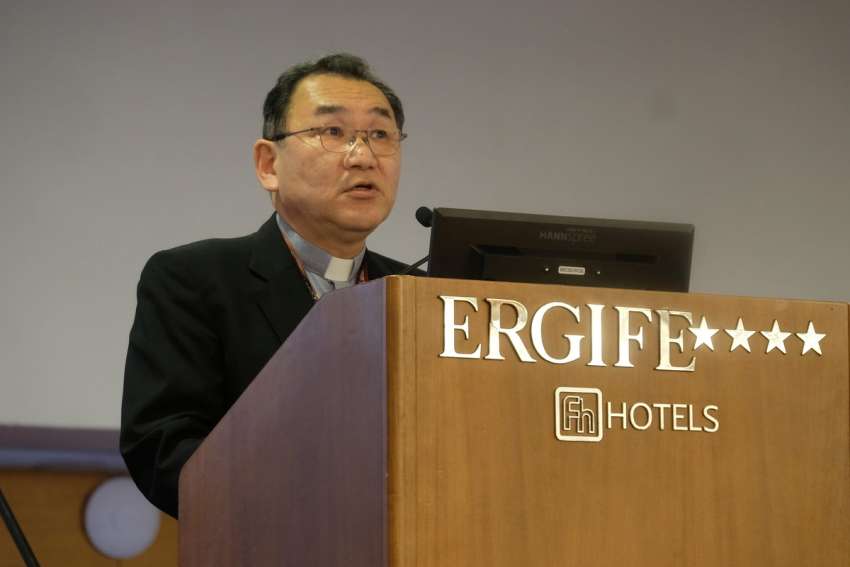Last year, Pope Francis intervened in the operations of Caritas Internationalis, sacking general secretary Aloysius John and some senior administrators, suspending the organization’s bylaws and appointing Pier Francesco Pinelli temporary administrator of the Rome office which co-ordinates activities for 162 separate Caritas organizations.
Six months later, at a meeting for 400 representatives of the member organizations, Caritas Internationalis proclaimed new bylaws, then elected Tokyo Archbishop Tarcisius Isao Kikuchi president, replacing Cardinal Luis Antonio Tagle. Alistair Dutton from Caritas Scotland was elected general secretary and Caritas Australia’s Kirsty Robertson is vice general secretary. A new representative council was elected to set directions and oversee the Rome operation. A third of the representative council members are women.
“I think the people seem satisfied, but worried,” Hétu told The Catholic Register on Zoom from Rome during the meetings. “The mood is very good in terms of being together. Because what draws us here is not bylaws, it’s the mission of the organization. It’s what we do worldwide.”
The worry in the minds of some Caritas delegates focused on whether the Vatican intervention last year represents a precedent.
“The next time, in five years or 10 years, if there’s some issue, are we going to clear the slate again? Is that the way to work? Or are we going to let the Caritas assembly manage it?” Hétu asked. “That’s where people are a bit sceptical — meaning, we need to trust but we need to respect that it’s a confederation.”
At the start of the Caritas general assembly, Canadian Cardinal Michael Czerny sought to reassure delegates on that score.
“Let me say what the intervention was not,” Czerny told the delegates. “It was not an examination of Caritas Internationalis in general. It was not to question the admirable and necessary achievements of Caritas Internationalis or of any of its member Caritases… The appointment of a temporary administrator of the general secretariat and governance bodies last November were never a criticism of the good work throughout the confederation.”
It came down to “workplace problems,” Czerny said.
“The exceptional good work of Caritas doesn’t justify or excuse serious shortcomings in how the general secretariat goes about its daily chores or how it treats the staff,” he said.
New bylaws for Caritas line the Church’s international aid network up with Pope Francis’ new constitution for the Roman Curia Praedicate Evangelium. The new constitution gives Czerny’s Dicastery for Promoting Integral Human Development broad oversight, but leaves the mission, priorities and operations up to member organizations and their elected governance structure, Czerny said.
The focus of member organizations is not on office politics in Rome but on suffering people around the world, said Hétu.
“To bring a sense of compassion, trying to repair the economic systems that are creating poverty,” Hétu said. “We talked (in Rome) about climate change today. We talked about wars.”
Hétu praised Czerny and Pope Francis for the quick return to democratic governance.


